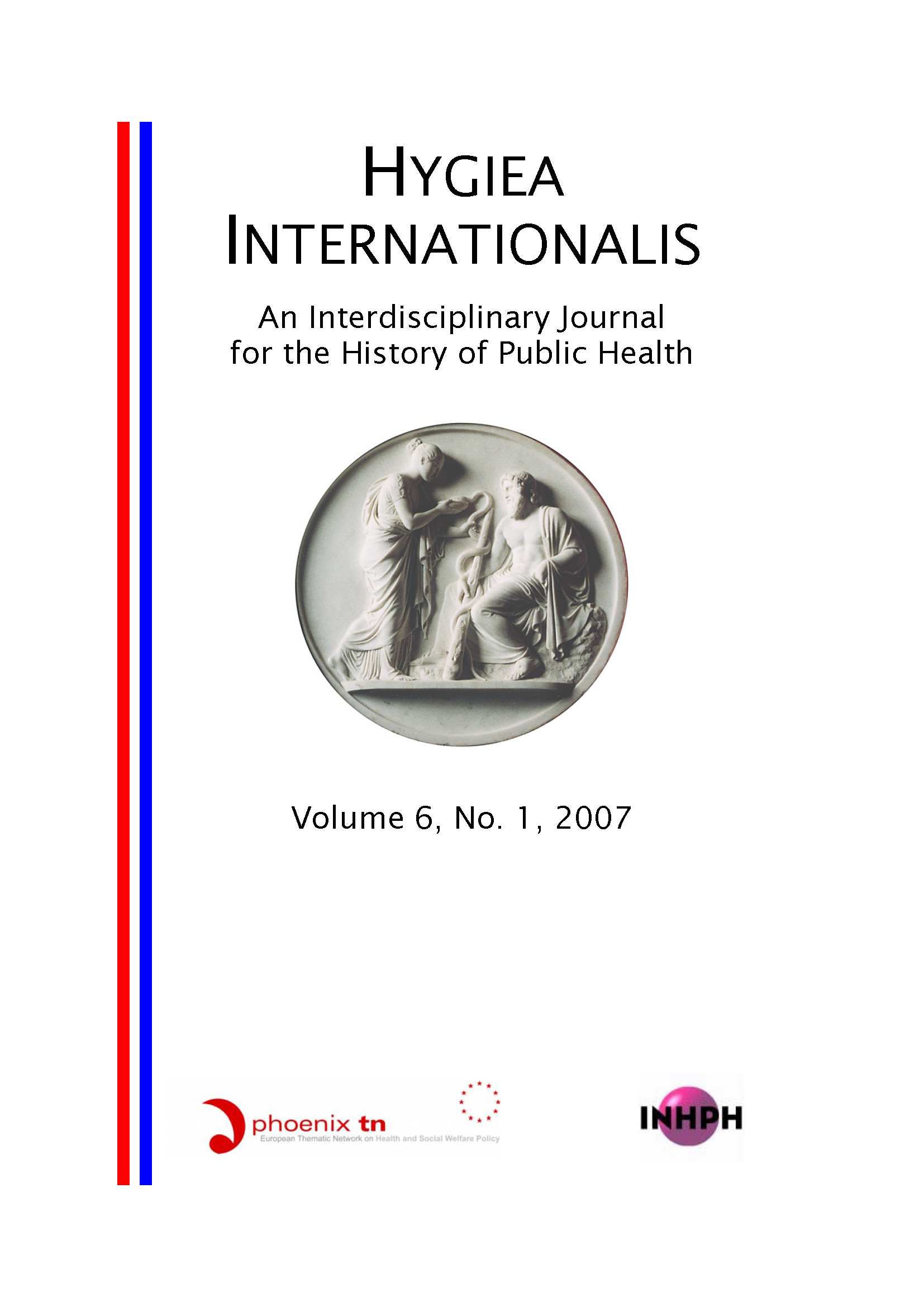Social and Health Care Access for the Physically Disabled in 19th Century French-Speaking Switzerland
Double Process of Exclusion and Integration
DOI:
https://doi.org/10.3384/hygiea.1403-8668.076167Keywords:
disability history, 19th century, Switzerland, Social care, Health care, institutions, integration/exclusionAbstract
During the 19th century, an unprecedented process of medicalisation and institutionalisation took place in Europe. The parallel development of urbanised and industrialised areas furthered the densification of a network of care institutions such as infirmaries and dispensaries, whilst medical tourism was developed among the upper classes stimulating the founding of new private clinics. A more institutional kind of care structure for people suffering from a disability also emerged. This medical and/or social care structure was part of a process of integration or exclusion, according to whether the disabled person’s state of health was likely to improve or not. This paper will focus on physically disabled persons, who were vaguely referred to as invalids or as “incurable” in 19th century institutional documents. Being mainly interested in French-speaking Switzerland, I will present the access to social and health care in the cantons of Geneva, Vaud and Neuchâtel.Downloads
Published
2007-07-19
How to Cite
Kaba, M. (2007). Social and Health Care Access for the Physically Disabled in 19th Century French-Speaking Switzerland: Double Process of Exclusion and Integration. Hygiea Internationalis: An Interdisciplinary Journal for the History of Public Health, 6(1), 67–77. https://doi.org/10.3384/hygiea.1403-8668.076167
Issue
Section
Articles
License
Copyright (c) 2007 the Author(s)

This work is licensed under a Creative Commons Attribution-NonCommercial 4.0 International License.






